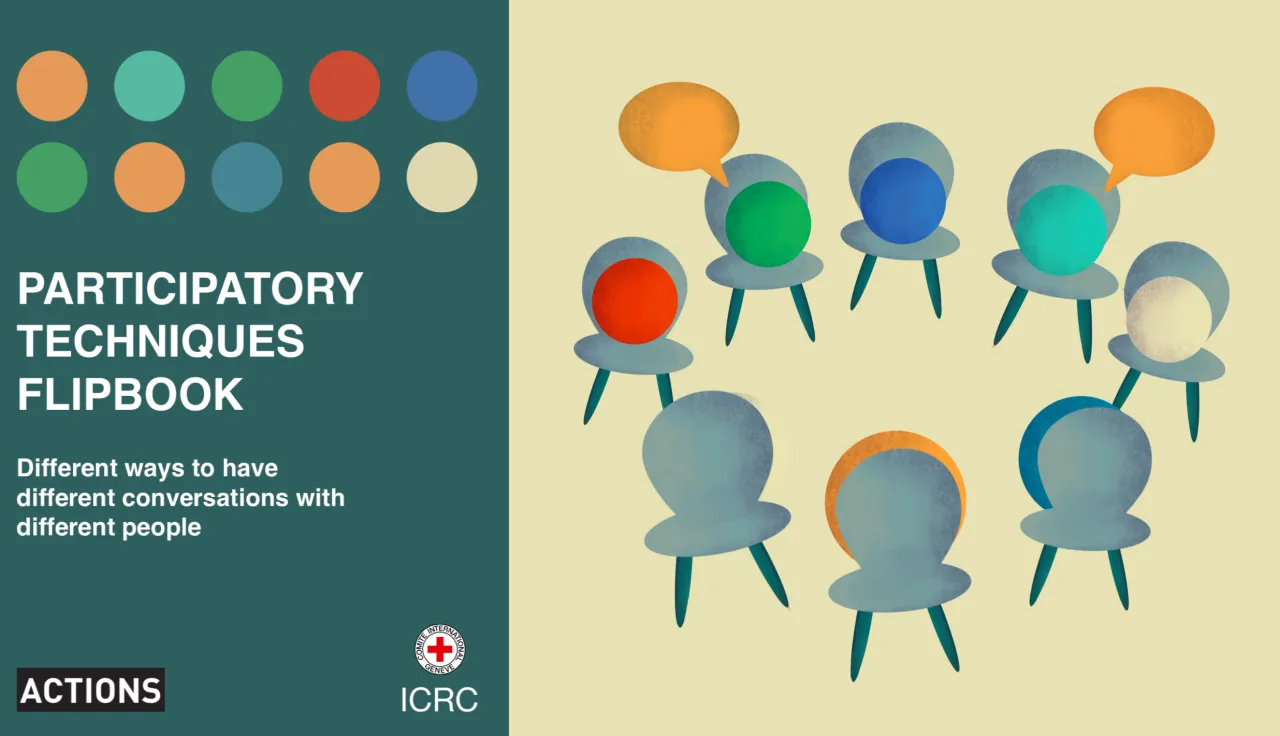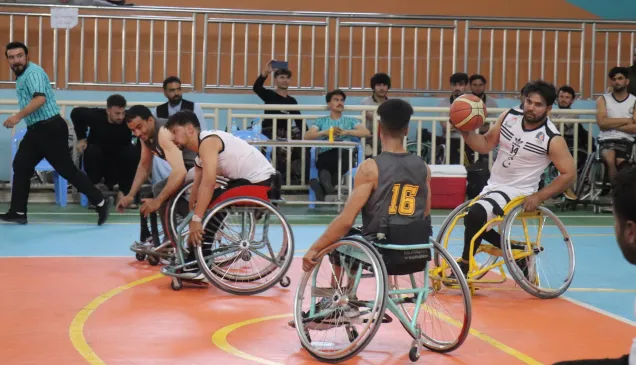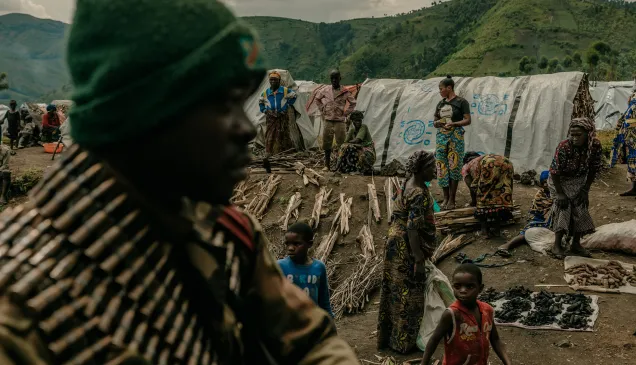Different ways to have different conversations with different people

This new ICRC flipbook contains over 50 one-page techniques that use art, music or theatre to engage with different audiences.
Imagine that you're in front of a group of forty people. In the next few hours, you're meant to discuss with them what are the main issues that their community is facing, what are the solutions that they could put in place, and how. What do you do? How do you structure the conversation? And how do you ensure that everyone has a say?
Situations like these are why the ICRC put together the Participatory techniques flipbook. The flipbook contains dozens of one-page techniques, which can be used to build trust or break the ice; map out or identify issues; and analyze or dig deeper into issues. Icons on the top left of each page indicate if a technique can be used with illiterate participants, if it can be adapted to younger audiences, or if it can be used to discuss sensitive issues.
Some techniques also list possible variations, or ways to make the exercise more accessible. The flipbook itself promotes accessibility by using large size, sans-serif font and a color palette that adjusts to all types of color blindness. It also includes one-page guidance on how to set up a room, how to mind one's body language, or how to spot different biases as a facilitator.
Finally, the flipbook also contains a toolkit for a community-forum theatre performance called 'ACTIONS'. Designed by Yan Duyvendak (winner of the Swiss Grand Award for Theatre / Hans Reinhart Ring 2019), Nicolas Cilins and Charlotte Terrapon, ACTIONS is a theatrical performance whose preparation, rehearsal and showings allow different individuals affected by a pre-defined problem to share their perspectives, insights and ideas for potential solutions.
For more information, contact Philippe Stoll (pstoll@icrc.org) or Tina Bouffet (tbouffet@icrc.org).



